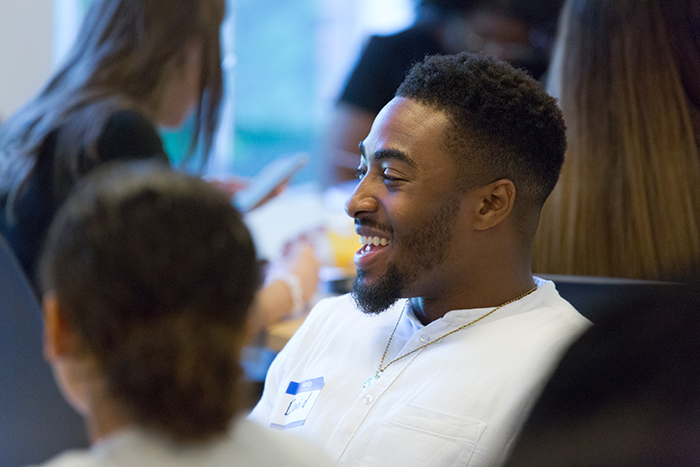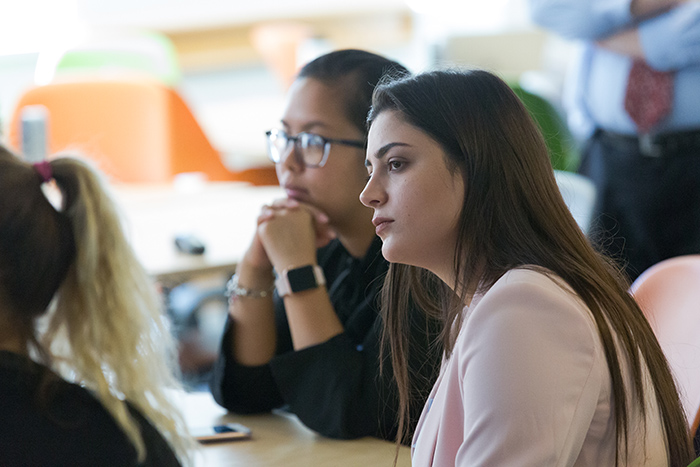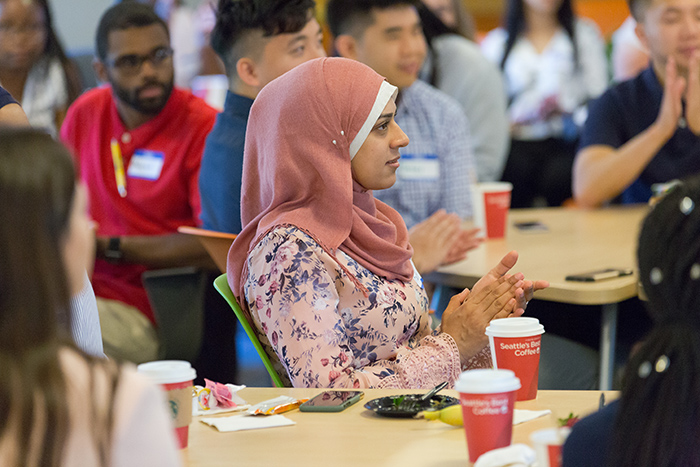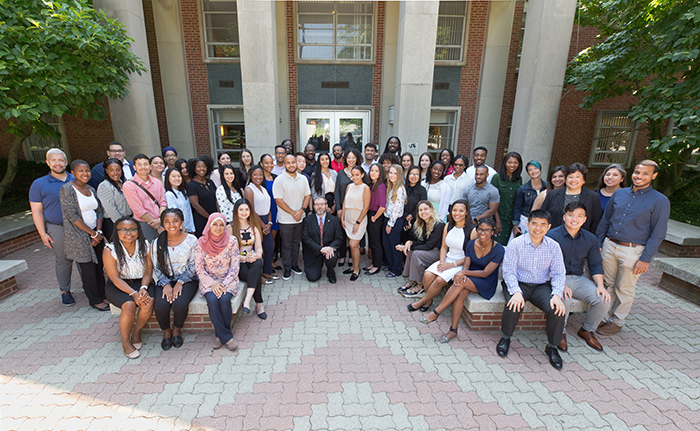Drexel Pathway to Medical School Paves the Way to Success
October 25, 2019

At the start of the academic year, the class of 2023 came together to celebrate their initiation to medical school during the White Coat Ceremony. Among them stood several students whose paths to medical school didn’t travel the traditional route. Twenty-seven members of the class of 2023 are alumni of Drexel’s Pathway to Medical School (DPMS) program, the largest group from the program so far to be accepted into the College of Medicine’s MD program.
DPMS is a unique post-baccalaureate program that provides students who have taken pre-med classes the opportunity to further enhance their academic background for medical school studies. DPMS accepts individuals who are socioeconomically disadvantaged and/or belong to groups underrepresented in the medical profession. Interim program director and associate dean of diversity, equity and inclusion Ana E. Núñez, MD, explains the program’s success, “When you think about the barriers of access and opportunity that talented, underrepresented-in-medicine students face, and then create a holistic/whole-person support system to promote academic success, students excel and thrive.”
“A few bad grades in undergraduate school or a poor MCAT score does not determine a student’s capabilities,” notes DPMS alum and first-year medical student Rebekah Madrid. “DPMS saw the potential in me and allowed me to prove that I can be a skilled and compassionate physician.”

Another alum and first-year medical student, Kelly Gillock, agrees. “DPMS was challenging, but it provides you with a sense of resolve and an affirmation that you are capable of much more than you may think.” She adds, “Because of the sheer volume of the material and time limitations set by exam dates, you quickly develop the skills necessary to succeed in the program.” These skills include determining how best one learns, employing time management, learning how to prioritize, and being resilient, among others.
Sola Aderonmu, first-year medical student, explains, “The material comes at you fast—sometimes you feel like you want to give up, and sometimes you learn more about yourself that you don’t like or that you consider a weakness. But all of these promote resilience and a level of self-actualization that promotes confidence and reassures your passion in medicine.”
Rebekah Madrid was drawn to DPMS because of its mission of assisting students who normally do not gain acceptance to medical school. “In DPMS, I knew I would receive the guidance and support I would normally not receive in other programs,” she says. Madrid credits her success in the program to the various resources available, including one-on-one tutoring, access to academic coaches, and counseling and psychological services.

Students who successfully complete the one-year DPMS master of science program, including achievement of academic and professional benchmarks, are accepted into Drexel's MD program. Christopher Nichols found this to be a motivating factor. “I felt that the program directors genuinely made me feel like my spot in next year’s incoming medical school class was mine to lose. It encouraged me.”
And once accepted into medical school, the DPMS students are well-prepared to succeed there. “DPMS has a flipped classroom format, where we engage with the material independently and then come together in labs to actively learn and review the material. The flipped classroom allowed me to strengthen my understanding and use my peers to help fill in gaps in knowledge,” explains Raidizon Mercedes. “My first-year classes are very similar, and I know how to engage with the material on my own so that I am prepared for class.”
“We co-create a culture of support that prepares students and helps them dig deep to not only overcome the hurdles, but thrive. From amazing professors, TAs, tutors and student support, we work with each person on their journey to success,” notes Dr. Núñez.

To learn more, visit the DPMS program website.